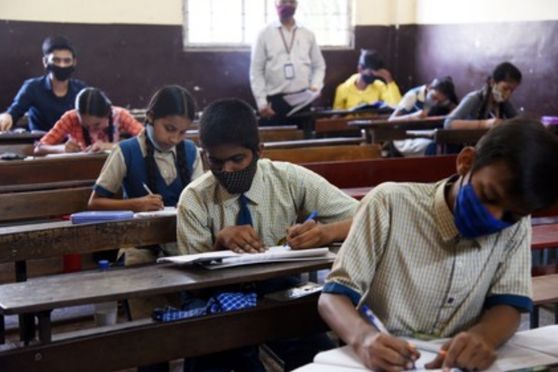ICSE Preparation Tips: How to study for the Hindi examination?


Before anything else, preparation is the key to success ~ Alexander Graham Bell
Hindi is one of the most scoring subjects in the board examination if students have the right preparation strategy. Vocabulary is quite important in this paper because it helps in performing well on the essay and letter writing portions of the exam.
We, at Edugraph, connected with Ms Anita Pandey, a Hindi teacher from St. Augustine's Day School to discuss what is the right method to study for the ICSE Class 10 Hindi paper, important chapters and much more. Read on to get the best preparation tips and get ready to score the best in the subject!
1. Tips on the correct method to study Hindi. What should students start with first - Grammar or Literature?
The correct method to study Hindi for board examination is to read all the stories and plays included in the syllabus along with the summary of all the poems. Hindi literature is an interesting part and students should give it more time for preparation. Students must make a daily schedule to complete the syllabus on time and cover all the prose, poetry and play.
When it comes to Hindi Grammar, it is important to note that regular practise and memorising certain chapters like Synonyms, Antonyms & Idioms will prove to be helpful at the time of the examination.
On the day of the examination, students can attempt any part first either Literature or Language, depending on their preparations.
If you start with literature then make sure you complete it in time because there are a lot of stories and characters.
If you decide the start doing grammar first then keep in mind that you might feel pressurized for the rest of the question paper. You have to finish it in time so that you have more time for essay writing. I suggest writing the essay at the end.
2. Your insights on the latest paper pattern?
The latest paper pattern is quite scoring for students. Essay and letter writing are of 15 and 7 marks each which should be attempted last.
Comprehension, which consists of 10 marks, must be read thoroughly to answer the questions accurately. It is considered to be another scoring part of the paper.
As the section Vocabulary and Grammar are of 8 marks and will come in multiple choice questions format, it is also very convenient for candidates.
Section B , where students have to attempt 4 questions with it being mandatory to attempt one question from each of the two books - novel, short story, poetry & play.
For the Sahitya Sagar Short Story section, students are required to read each and every story thoroughly and have a solid idea of the plot to answer any one of the questions.
For the Sahitya Sagar Poetry section, students must read the poems thoroughly and have a solid preparation when it comes to the explanation of the stanzas.
For the novel and play section of the paper, it is important to remember the characters’ names and major plot points to answer the questions.
3. What are the most common & expected topics for Essay writing?
The most common and expected essay topics might be current situations in our country. Many related topics are given - common problems with solutions - in the textbooks which are prescribed by the board.
4. Is the picture story worth attempting?
Students should attempt the picture story only if they can understand the picture, have knowledge related to the topic and can explain the picture clearly. If attempted, it is compulsory to describe the picture in the first 5 to 6 lines.
5. How should students prepare for Hindi grammar given that there are over 100 antonyms, synonyms, idioms & correct-incorrect spellings?
Students have to follow the new question paper pattern - the board will give options to create confusion. So, one needs to practice sample question papers thoroughly to get an idea and take proper revisions for Hindi grammar.
6. Which are the most important poems for this year? How should students prepare for the poetry section?
It is important to have a knowledge of all the poems’ summaries and while writing the answers for the poetry section quoting certain lines from the poem would be scoring.
7. How to prepare for the long QnAs of the novel?
Students have to prepare for the long answers from the novel. They must read it well before and memorise the character sketches and know about each incident properly.
8. For the drama section of the paper, how should students prepare?
In the drama section, students should read the dramas 2-3 times, memorise the characters and the storyline to answer any questions at the examination.
9. How much time should a student give to each chapter from the poem, prose & play sections?
Students should give 20 to 25 minutes for a better understanding of each chapter.
10. How to revise last minute for the board examination?
For last-minute revisions, they can make short notes about the names of the chapters’, writer names, poet names, and the characters’ names, and write them down as important keywords of the stories step by step and move forward so they can recall and memorise easily. It is also important to note that students should know the plot idea for each and every chapter, poem & drama.
11. Tips on self-assessment before the examination
Your main goal should be to do your best and provide the best response you can. We truly hope that these tips will be useful to you as you get ready for the ICSE 2023 exam. All the best!